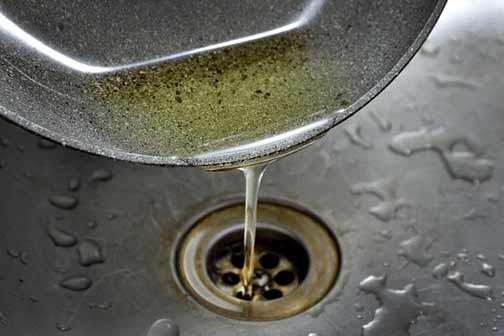
The garbage disposal in your home can clog at any time of the year, but it is most likely to clog during the summer. What is it about summer that makes your garbage disposal prone to clogging at this time of the year? The problem is not with summer, but how people handle their garbage during summer, says BanCal Properties.
Generally, drainage systems, including your garbage disposal, experience a lot of use and abuse during the summer season. This additional pressure, which the system is usually not prepared for, is the reason for the increased rate of clogs and blockages in the garbage disposal and drainage system.
At any time of the year, letting food waste, such as grease, fibrous vegetables, and fruit rinds, into the garbage disposal will cause problems. But with more people in your home in summer and lots of outdoor cooking going on, more food waste is likely to end up inside the garbage disposal.
Summer heat also contributes to the problem by drying out the garbage disposal faster, forcing the fat inside the appliance to solidify. This ultimately increases the risk of clogs in the system. How do you keep your garbage disposal running smoothly during summer? What are the things to do or not to do? Food waste can clog your garbage disposal.
Avoid putting these types of food waste into your garbage disposal
Fats, oils, and grease (FOG)
These will not only harm your garbage disposal, but they can also upset the operation of your entire drainage system. From being soft and runny inside your kitchen, fats, oils, and grease congeal into a hard, sticky mass that causes problems inside your garbage disposal.
Fibrous vegetables
Your garbage disposal is not equipped to deal with things that have long and fibrous strands. It will not cut or grind asparagus, celery, corn husks, artichokes, etc. Instead, they will wrap around the disposal blade, straining the motor and eventually jamming the appliance.
Starchy foods
Like fats, oils, and grease, starchy foods are a problem because they will stick to the walls and blade of the garbage disposal. Moreover, starchy foods like mashed potatoes, potato peels, cooked rice, and pasta swell to several times their size in water. The resulting paste will block your garbage disposal.
Coffee grounds and eggshells
Because of their tiny granules, coffee grounds and ground-up eggshells are not easily flushed out by water. After being pulverized into a fine powder by the garbage disposal, they will settle at the bottom of the unit or clump together inside the appliance.
Bones, fruit pits, shells, and nuts
These hard items should never be disposed of inside a garbage disposal. Bones, shells from seafood, and fruit pits will damage the blades of your garbage disposal. The appliance is not designed to handle such items; they will only end up jamming the unit.
Large amounts of food waste
As a rule, do not dump large pieces of food scraps into the disposal unit. Also, do not dispose of a large volume of food waste at once, not even if they are in tiny bits. Doing this will overwhelm the garbage disposal and cause the blades to stick or the motor to burn.

How to maintain a garbage disposal during summer
Install a sink strainer
Installing a strainer in your sink is one of the best things you can do for your garbage disposal, because it catches all the junk that would have ended up inside the appliance, giving you a chance to dispose of it properly. Install the right type of strainer and clean it often.
Use plenty of cold water
When using the garbage disposal, run generous amounts of cold water into the unit. The water will help to carry food waste through the disposal into your drainpipes. Do not flush the garbage disposal with cold water, as it can melt fats and cause them to stick to the blades.
Run your garbage disposal every day
This is the best way to ensure that the blades don’t become stuck or rusty from lack of use. Do this even if you have nothing to dispose of. Some garbage disposals are not equipped to grind ice cubes; if yours is, you may want to add a few ice cubes while running the unit.
Clean the garbage disposal
Do this every two weeks at least. Garbage disposals tend to collect pieces of food scraps, which can decompose and smell. To kill the bacteria inside the unit, pour a cup of vinegar and a ½ cup of baking soda into the appliance. Also, grind some citrus fruits in the unit to give it a fresh scent.
Lastly, the best tip for looking after your garbage disposal is to act like you don’t have one. This means not intentionally putting food scraps down the sink drain. Garbage disposals are not built to function as a trash can. They are only meant to handle food scraps that accidentally fall into them.

